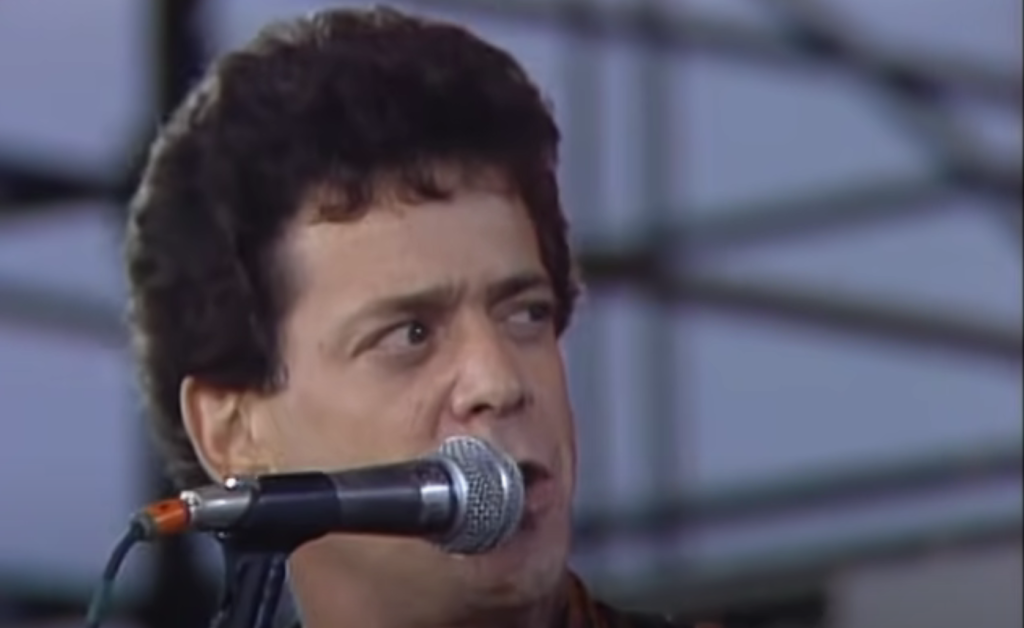Lou Reed – “Walk on the Wild Side”: A Cool Whisper of Counterculture
When Lou Reed released “Walk on the Wild Side” in 1972, he wasn’t aiming for a hit. And yet, with its laid-back groove, whispered vocals, and frank storytelling, the song became an unlikely anthem—a soft-spoken salute to society’s outsiders that slid its way into the mainstream with a wink and a smirk.
More than 50 years later, “Walk on the Wild Side” remains a landmark of rock music, notable for what it says, how it says it, and the fact that it said it at all. At a time when popular music rarely acknowledged queerness, gender identity, or life on the margins, Lou Reed leaned in and sang about it with empathy, style, and zero judgment.
The Sound: Jazz Cool Meets Street Poetry
Musically, “Walk on the Wild Side” is deceptively simple but deeply effective. It’s built on a loungy upright bass line played by Herbie Flowers, who famously doubled it with an electric bass to get paid twice. Add to that some gentle acoustic guitar, brushed drums, and baritone sax, and you get a track that feels like it’s slinking down a late-night New York alley.
Reed’s delivery is part-spoken, part-sung, completely unhurried. His detached, deadpan tone lets the stories breathe, placing the focus squarely on the people he’s singing about. Each verse introduces a different character from Andy Warhol’s Factory scene—Holly, Candy, Little Joe, Sugar Plum Fairy, and Jackie—all real people who lived real lives on the edge of society.
“Holly came from Miami, F.L.A. / Hitchhiked her way across the U.S.A.”
The Lyrics: Real People, Unfiltered Lives
The brilliance of “Walk on the Wild Side” lies in its casual honesty. Reed doesn’t sensationalize his characters—he observes them. With a few lines, he sketches lives full of complexity: gender transition, survival sex work, addiction, fame, and defiance.
“Candy came from out on the island / In the backroom she was everybody’s darling…”
The famous, now-iconic chorus—“And the colored girls go ‘doo do doo do doo do do doo…’”—adds a dreamlike, hypnotic feel. Sung by Thunderthighs, a British vocal trio, it’s as unexpected as it is perfect, looping like a mantra of cool detachment.
At the time of its release, lyrics that openly referenced transgender people and hustlers were nearly unheard of on commercial radio. Yet somehow, the song slid past the censors—maybe because it was so smooth, or because nobody had ever heard anything quite like it.
Cultural Impact: Quietly Revolutionary
“Walk on the Wild Side” hit #16 on the Billboard Hot 100 in the U.S. and became Lou Reed’s signature solo song. But its impact went far beyond chart position. It helped push queer voices and marginalized lives into the cultural conversation—not through protest, but through storytelling.
Reed, who had already pushed boundaries with The Velvet Underground, was showing that rock music could be artful, subversive, and humane—all at once. The song became a cultural touchstone, quoted, covered, and referenced in everything from fashion ads to indie films.
Over the years, artists from David Bowie (who co-produced Transformer, the album that houses the song) to modern LGBTQ+ musicians have cited Reed as a pioneer of visibility and authenticity.
Legacy: The Cool That Never Fades
“Walk on the Wild Side” is often praised for how ahead of its time it was. But it’s more than just a “bold” song—it’s a beautifully crafted one, where every word and note is deliberate. It’s both a celebration and a eulogy, capturing a moment in 1970s New York where art, sexuality, and survival intersected in a way that felt both dangerous and magical.
Even now, the song feels timeless, not just because of its music, but because of its message: Everyone deserves a verse. Everyone deserves to be seen, sung about, and remembered.

Final Thoughts
“Walk on the Wild Side” isn’t just a stroll through the underworld. It’s a gentle hand on the shoulder, an invitation to listen without judging, and a reminder that the so-called fringes of society are where some of the most unforgettable stories live.
Lou Reed didn’t ask you to understand his characters.
He just asked you to walk beside them for a while.
And that walk changed music—forever.


Facebook Comments